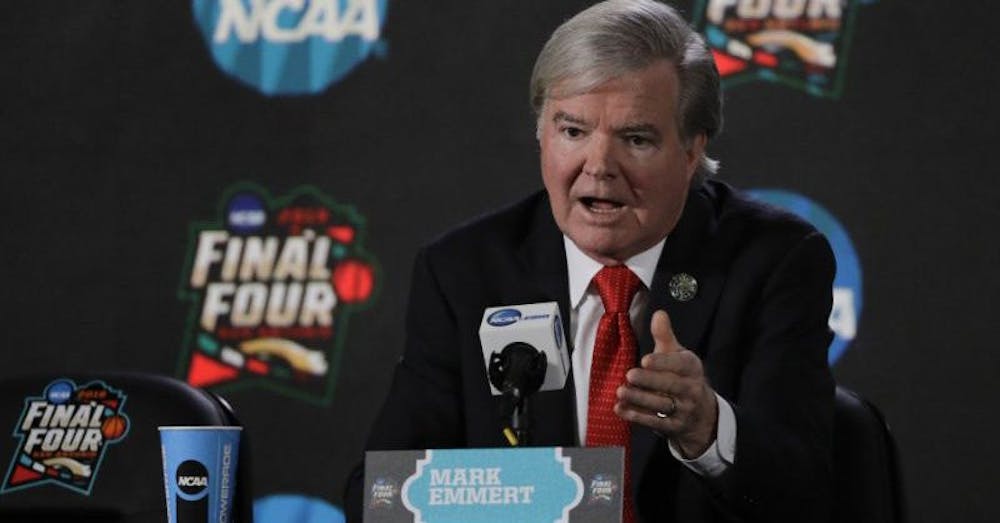By Jordan Washington
Staff Writer
March is on its way and so is the tradition of scrambling together brackets and rushing to the betting lines for NCAA March Madness, the annual riveting college basketball tournament composed of the best 68 teams of the year.
It has become a right of passage for fans to place bets on the scores of each game in the hopes of winning some money.

March Madness money primarily goes to the NCAA, the conferences and coaches, but the group that sees little to nothing in terms of compensation is the players. The players are considered “amateurs” or “doing it for the love of the game,” which is common rhetoric used to excuse their nonexistent salaries.
There are billions of dollars moving around for everyone except the players, who are the ones putting their blood, sweat and tears on the line.
March Madness is broadcasted on CBS and Turner Sports, who pay the NCAA $10.8 billion over the course of a 14-year deal that is set to end in 2024.
In 2016, the NCAA, along with CBS and Turner Sports, agreed to an eight-year extension worth $8.8 billion. This means there will be $1.1 billion made a year from TV only, according to USA Today.
Gambling on sports games has become a new norm, according to the American Gaming Association. Approximately $10 billion is wagered on the tournament, which is primarily done illegally. ESPN, CBS, Yahoo and many other companies have bracket creating services when tournament time rolls around, which is known informally as “Bracketology.”
Sponsors come from all over the country in order to get a piece of the March Madness pie. From the team uniforms to the ladder used to cut down a piece of the net, which is a storied tradition, everything is sponsored, allowing the NCAA to make millions from the tournament.
Although it is unrealistic to think the NCAA will ever actually create salaries for college players or allow them to unionize as workers, there still is a more feasible option.
If Nike wants to approach Duke University superstar Zion Williamson with a $500,000 contract to wear its sneakers, he should be able to accept it.
If the local Applebee’s wants to pay an athlete $1,000 to come to the restaurant for two hours and sign autographs, he should be able to.
This system would be similar to an English student who makes a profit from writing a book or a music student who records an album.
The NCAA has a ridiculous amount of rules for its players — the organization stresses that they are students first and cannot receive extra benefits.
When swimmer Katie Ledecky went on The Ellen Show after absolutely dominating in the Olympics, she was offered a waffle maker but had to refuse the gift because of NCAA’s policy on gift-giving, according to USA Today.
Another argument in favor of not compensating student athletes is that a full college scholarship is enough of a privilege for them.
Although scholarships are extremely beneficial, it is safe to say that the NCAA racks in enough cash to cover the players’ tuition and give them some sort of salary or at least compensation as thanks for all the money they bring the NCAA throughout the season.
It is saddening that the NCAA does not carve out salaries for players, allow them to make money off of advertisements or even receive gifts.
These hard-working student athletes deserve compensation for their dedication, popularity and talent.







